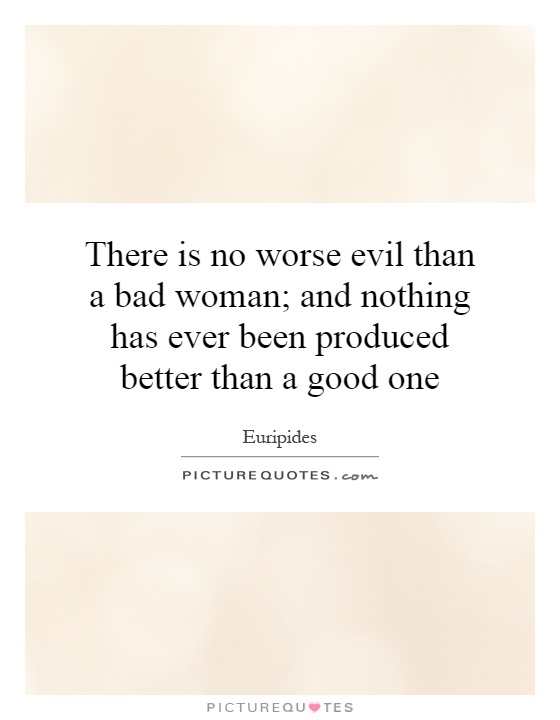There is no worse evil than a bad woman; and nothing has ever been produced better than a good one

There is no worse evil than a bad woman; and nothing has ever been produced better than a good one
In the world of Greek tragedy, Euripides was known for his complex and often controversial portrayals of women. In his plays, women were often depicted as powerful and cunning, capable of both great good and great evil. The quote “There is no worse evil than a bad woman; and nothing has ever been produced better than a good one” encapsulates this duality in Euripides’ work.Euripides’ plays often featured strong female characters who defied societal norms and expectations. Medea, for example, is one of his most famous characters, a woman who seeks revenge on her unfaithful husband by killing their children. Medea’s actions are undeniably evil, but they are also a result of the injustices she has suffered at the hands of men. Euripides does not excuse her actions, but he also does not shy away from exploring the complexities of her character.
On the other hand, Euripides also wrote about virtuous and noble women who embody the best qualities of humanity. In plays like “Alcestis” and “Iphigenia at Aulis,” Euripides portrays women who are selfless, brave, and compassionate. These women are willing to sacrifice themselves for the greater good, demonstrating the power of love and loyalty.
The quote suggests that women have the potential for both great good and great evil, and that their actions can have a profound impact on the world around them. Euripides’ plays often explore the consequences of women’s choices, showing how their actions can shape the course of history. Whether they are motivated by love, revenge, or ambition, women in Euripides’ plays are complex and multifaceted characters who defy easy categorization.












 Friendship Quotes
Friendship Quotes Love Quotes
Love Quotes Life Quotes
Life Quotes Funny Quotes
Funny Quotes Motivational Quotes
Motivational Quotes Inspirational Quotes
Inspirational Quotes